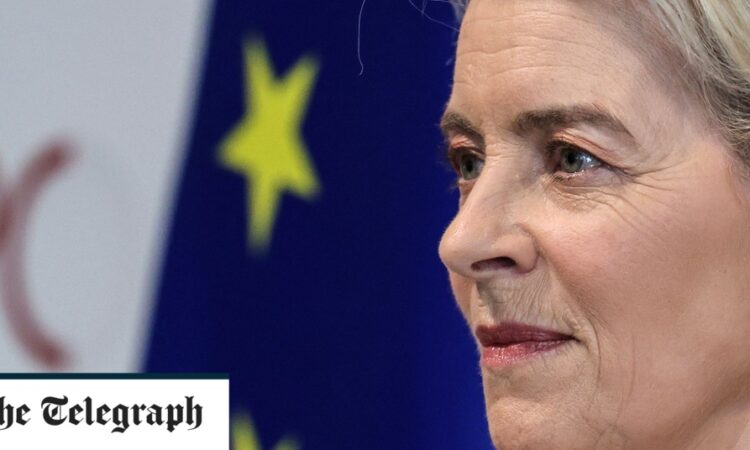
There was the €750 billion-plus Coronavirus Recovery Fund, designed to help member states bounce back from the pandemic. There is a chips act, and a green industrial strategy, arguably designed to match President Joe Biden’s vast subsidies for alternative energies in the United States, as well as to reclaim control of the high-tech supply chains that industry depends on.
And to its credit, it has been sending significant sums of money to help Ukraine fight off Russian aggression, as well as, slightly less to its credit, indexing the salaries of all its officials to sky-high Belgium inflation (12.5pc at its peak earlier this year). It has even issued hundreds of billions worth of bonds. There has been a significant increase in its scope, powers, and spending.
Here’s the problem, however. The bills are finally starting to fall due. This week, the European Parliament criticised some very modest cuts to the 2024 spending programme, reducing it from €189bn to €187bn. But the real battle is gathering over the fiscal plans for the next four years.
In June, the Commission laid out plans for a €66bn increase in the 2021-2027 budget, as well an extra €20bn on top of that for helping Ukraine. The Commission hopes to have that agreed by the end of the year.
And yet, right now, none of the 27 members appear very keen to stump up the extra cash. It is not hard to understand why. For a start, it is not as if the money is spent very usefully.
Of the extra €66bn in funding demanded, €19bn is needed to pay for higher than expected interest costs on its additional borrowing (because it never seemed to occur to anyone in Brussels that interest rates might rise), €1.9bn for higher administration costs of running the EU’s machinery, always a top priority, €15bn for the cost of coping with extra migration, because that is hard once you lose control of your borders, as well as €10bn to top-up existing funds like InvestEU (€5bn), Innovation Fund (€3bn), the European Defense Fund (€1.5bn) and the European Innovation Council (€500m) – puny amounts that may make little difference to the industrial competitiveness of the continent.
Next, all the major countries are in a tight financial position themselves. France recently saw its credit rating cut, and is struggling to balance its budget. Germany is performing worse than any other economy in the zone, and has just cut corporate taxes by €32bn to stimulate growth, while Italy has returned to the stagnation that has been a feature of its economy since it swapped the lira for the euro back in 1999.






